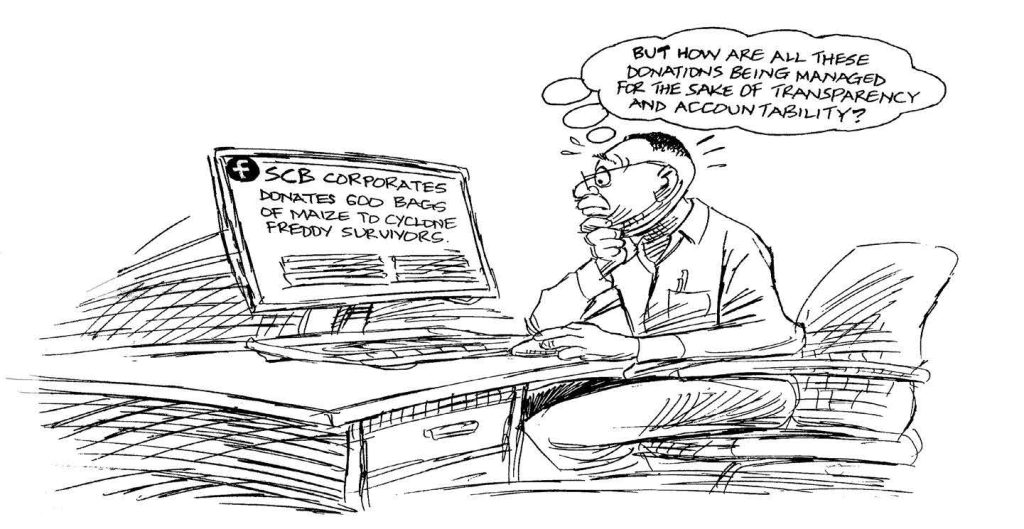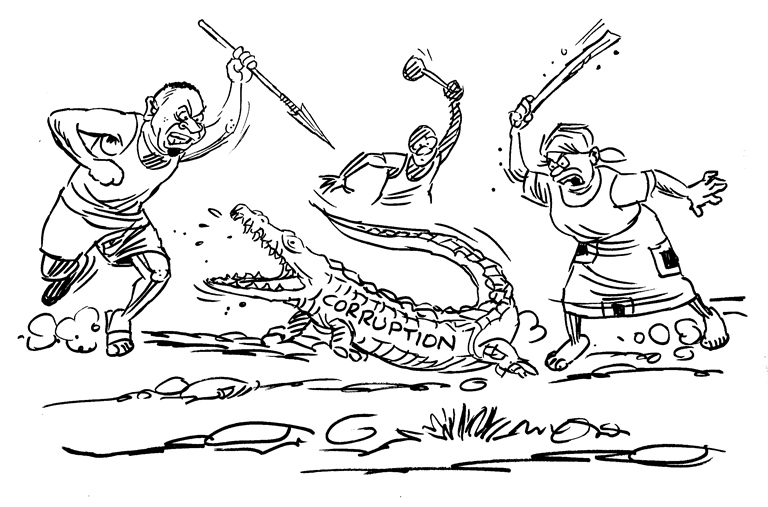Accountability in disaster response—lessons
Last week, we took some time to mention that, while disaster times can be solemn times requiring that people invest more of their energies and resources towards the END than the MEANS, it is always important to remain resolute and vigilant about protecting disaster response resources from abuse through corruption or mismanagement. We also mentioned that transparency or openness is crucial to accountability and achieving corruption-free disaster response. It was emphasised that all agencies entrusted with resources intended to help disaster victims must put in place mechanisms for accountability such as proactively and periodically publishing all information about donations received and some details of distribution plans and reports.

We must hasten to applaud a lot of social media volunteers that have provided prudent leadership in mobilising and distributing emergency aid towards helping victims of Cyclone Freddy. Apart from mobilising and distributing the items, the social media initiators have taken it upon themselves to publish openly and without being coerced, all information about emergency donations distribution plans and reports. Some have gone to the extent of inviting private audit firms to assess their mode of operations and financial transactions. This has not only helped to increase trust from donors and the general public, but it has also helped other interested parties to estimate how much and the form of support that is still required for victims in the affected areas.
On the other hand, political leaders and government agencies have also been up and about visiting affected areas and also mobilising and distributing resources for the disaster victims. This is quite commendable and expected in a time like this. However, the level of proactive and up-to-date disclosure of information on management of the emergency operations and resources is very lacking.
While we must applaud institutions such as the Department of Disaster Management Af f a i r s (Dodma) for coordinating the management of emergency oper a t i ons including mobilisation of resources for the current emergency situation caused by Cyclone Freddy, we should not hesitate to mention that proactive disclosure of information has not been encouraging at all. From a glance, Dodma has a Facebook page and Website which by now would be beehives of all relevant and up-to-date information about Cyclone Freddy, especially on the mobilisation and distribution of relief items by all players.
However, the Facebook page only gives news about ongoing donations and does not mention about how the donations will be distributed. For people interested in accountability, acknowledging receipt of donations is only courteous, what matters most is demonstrating how the donations will be distributed or how they have been distributed.
Further, we should have expected by now that the Public Procurement and Disposal of Assets Authority (PPDA) would be publishing all information about all emergency procurements for works, services and goods for the current emergency operations. The last time I visited the PPDA website to check on procurement notices or plans, none was about the ongoing emergency operations.
A very important charity organisation that has also played a key role in mobilizing and distributing relief items or providing essential emergency services is the Malawi Red Cross Society. Their Facebook page and Tweeter account have appeals for donations and some news about donations received and events where the relief items are being presented. Again, this is good as the platforms ensure that the public is
aware about the severity of the humanitarian situation and also the efforts being made to help victims.
However, accountability will require more than just publication of appeals for help, news about donations or handover ceremonies. Information for accountability must be information that helps to provide assurance that resources were used effectively and efficiently for the maximum benefit of end users.
All I am trying to say is that in modern times accountability is everything for anything that concerns public life or welfare. As the we continue playing our various roles to provide assistance to disaster victims, the world will be more thankful to know through as much evidence as possible, that there was no wastage, no abuse nor diversion of resources meant for disaster victims.




